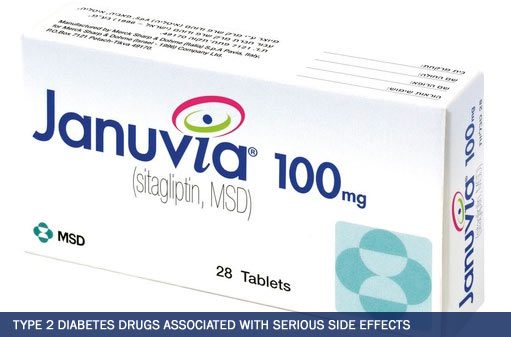
On Friday, the Food and Drug Administration (FDA) warned diabetes patients that an entire class of diabetes drugs can cause severe and disabling joint pain. The drugs include Januvia (sitagliptin), Onglyza (saxagliptin), Tradjenta (linagliptin) and Nesina (alogliptin). They are all in the same class and work by making more insulin available to the body. Januvia […]

FDA Warns of Diabetes Drug that Causes Disabling Joint Pain
On Friday, the Food and Drug Administration (FDA) warned diabetes patients that an entire class of diabetes drugs can cause severe and disabling joint pain.
The drugs include Januvia (sitagliptin), Onglyza (saxagliptin), Tradjenta (linagliptin) and Nesina (alogliptin). They are all in the same class and work by making more insulin available to the body.
Januvia was the first drug in the class, approved by the FDA in 2006. “The U.S. Food and Drug Administration (FDA) is warning that the type 2 diabetes medicines sitagliptin, saxagliptin, linagliptin, and alogliptin may cause joint pain that can be severe and disabling,” the agency said in a statement that uses the generic names of the drugs, NBC News reports.
The FDA has added new warnings about the joint pain risk to the labels of all medicines in this drug class, dipeptidyl peptidase-4 (DPP-4) inhibitors. The drugs are already linked with some potentially severe side effects. Januvia can cause pancreatitis, a severe inflammation of the pancreas that is not only excruciating but can also be deadly. A trial of more than 16,000 patients showed patients taking Onglyza had an increased risk of hospitalization due to heart failure, Reuters reported.
DPP-4 inhibitors are used along with diet and exercise to lower blood sugar in adults with Type 2 diabetes. When untreated, the FDA explains, Type 2 diabetes can lead to serious problems, including blindness, nerve and kidney damage, and heart disease. DPP-4 inhibitors are available as single-ingredient products and in combination with other diabetes medicines such as metformin. The combination medicines include Janumet, Kombiglyze XR, Glyxambi, Jentadueto, and Oseni.
The FDA advises patients not to stop taking a DPP-4 inhibitor medicine, but to contact their physician right away if they experience “severe and persistent joint pain.” “Health care professionals should consider DPP-4 inhibitors as a possible cause of severe joint pain and discontinue the drug if appropriate,” according to the FDA statement.
The FDA said the side effects can be caused by the drugs, but not always. According to an analysis of the medical literature and the FAERS database (FDA Adverse Events Reporting System), the FDA identified cases of severe joint pain associated with DPP-4 inhibitors. According to the FDA’s analysis, people taking medications in this particular class did have a higher risk of severe joint pain. “Patients started having symptoms from one day to years after they started taking a DPP-4 inhibitor. After the patients discontinued the DPP-4 inhibitor medicine, their symptoms were relieved, usually in less than a month,” according to the FDA. But some patients developed severe joint pain again when they restarted the same medicine or began taking another DPP-4 inhibitor.
The FDA urges patients and health care professionals to report side effects involving DPP-4 inhibitors to the FDA MedWatch program.


